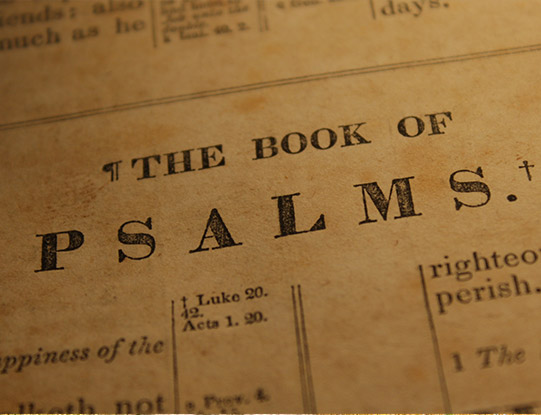Welcome to “Part B” of my September 26th article on lament in the Calgary Herald.
When I read many of the Psalms*, I feel like I’m eavesdropping on some very private and intensely emotional conversations between King David and God. Simultaneously, I feel my ears burning because David is talking about my feelings! How does he know?
Psalms 5:1-2 NIV
Listen to my words, Lord, consider my lament. Hear my cry for help, my King and my God, for to you I pray.
King David lays out a pattern for lament, which serves as a template for us. When I need to express my own pain, lament gives voice to my distress. The sheer number of Psalms of lament leads me to believe that this is a part of healthy grieving and living. Lament is an activity that God endorses. Each of David’s laments eventually lead him to a reorientation of his life with the net result of feeling connected with God and experiencing greater personal resilience.
Here is the pattern I observe with reference to Psalm 13:
- God this hurts. King David expresses gut-wrenching, jagged feelings to God about how untenable and unfair life is. He found himself in some very desperate situations - fleeing from enemies, hiding and feeling lonely, cold, hungry and defeated.
Psalms 13:1 NIV
How long, Lord? Will you forget me forever? How long will you hide your face from me?
- This is why I hurt. David expresses in detail his problems and how he feels about them to God. Remember our tool? 5 W’s and an H. Look at your circumstances and interrogate your pain.
Psalms 13:1-2 NIV
How long must I wrestle with my thoughts and day after day have sorrow in my heart? How long will my enemy triumph over me?
It is true that God sees all things, and he knows a word even before it is on our lips. Regardless, it was important that David lay out all the cards before God. So too, when I lament with God, I find it helpful to drill down into the specifics that are causing me so much pain.
- God I need your help! God I can’t handle this! God, I’m not sure I can survive this. I’m broken. You’re going to have to carry me. Even better, take this from me! Help me navigate this.
Psalms 13:3-4 NIV
Look on me and answer, Lord my God. Give light to my eyes, or I will sleep in death, and my enemy will say, “I have overcome him,” and my foes will rejoice when I fall.
- God I trust you. At some point in his lament, David is able to pivot. This is where - despite the way events have played out - David turns from his circumstances and turns to God to say: “I will trust you”. David remembers God loves him, period. He pivots from being overwhelmed by the pain, to getting traction to live with hope. God knows all about you, but in lament, you know that you know that He knows! That is when the pivot takes place. You discover that God is on your side. He is your cheerleader. He wants good for you.
Psalms 13:5 NIV
But I trust in your unfailing love; my heart rejoices in your salvation.
- God I turn my worry into worship. Consequently, David would not just “feel better” and get on with life and try to live on his own but rather he would see God had extreme value or “worth-ship”. Why? Because David is so grateful that he is in partnership with God - he doesn’t have to do life all alone. The net result is that David is re-oriented. His focus is on God in worship, and away from the crippling effect of his pain.
Psalms 13:6 NIV
I will sing the Lord’s praise, for he has been good to me.
This is not a “one time and I’m all better” thing; it is a lifestyle alteration. Lament happens over and over because our lives are full of changes and losses. The process of lament changes David’s attitude by changing his altitude. It does the same for us.
Laying it all out is cathartic, perhaps even cleansing. My crying, until tears lose their stinging saltiness, leads me to a place where I offer my limp self into the arms of God. There I am held, cherished, forgiven, accepted, supported and loved. In my lament, I am slowly and creatively restored. I rest.
Psalms 4:8 NIV
In peace I will lie down and sleep, for you alone, Lord, make me dwell in safety.
I don’t want to waste my pain. . I’m not an accidental creation, but a purpose-filled one. I am uniquely designed, by God, for a specific purpose that only I can fulfill. Consequently, I will embrace lament because it enables me to move past inertia and live again.
Lamentations 3:19-24 NLT
The thought of my suffering and homelessness is bitter beyond words. I will never forget this awful time, as I grieve over my loss. Yet I still dare to hope when I remember this: The faithful love of the Lord never ends! His mercies never cease. Great is His faithfulness; His mercies begin afresh each morning. I say to myself, “The Lord is my inheritance; therefore, I will hope in Him!
Psalms of Lament include: 6, 13, 22, 35, 28, 43, 60, 74, 79, 80, 83, 88, 89, 90, 102,109,142
Here are three songs that have been of huge encouragement to me. Have a listen!


